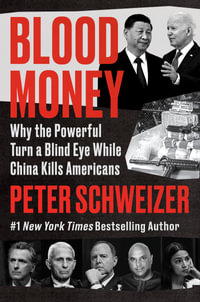Dominant theories of regulatory choice privilege the goals and actions of district-oriented legislators and organized groups. Presidents, Parties, and the State challenges this conventional frame, placing presidential elections and national party leaders at the centre of American regulatory state development. Historically the 'out-party' in national politics between 1884 and 1936, the Democratic party of Grover Cleveland, Woodrow Wilson and Franklin Roosevelt confronted a severe political quandary, one which pit long-term ideological commitments against short-term electoral opportunities. In short, Democrats, when in power, were forced to choose between enacting the regulatory agenda of their traditional party base, or legislating the programs of voting blocs deemed pivotal to the consolidation of national party power. Coalition-building imperatives drove Democratic leaders to embrace the latter alternative, prompting legislative intervention to secure outcomes consistent with national party needs. In the end, the electoral logic that fuelled Democratic choice proved consequential for the trajectory of American state development.
Industry Reviews
"Scott James combines impeccable historiography with first-rate political analysis to discover the brass ring of turn of the century American congressional politics--winning control of the presidency. This thoroughly political, highly strategic account offers a convincing rationale for understanding this critical era of America's political development." Samuel Kernell, University of California, San Diego "...sensitivity to contingency makes James' study excellent history as well as important political science...It is this careful attention to historical context and individual action that makes this fresh "perspective" on policy history so valuable in comparison with more rigid institutionalist and rational-choice approaches to the subject." James J. Connelly, Journal of Interdisciplinary History "James resolves a great paradox in American state development, explaining why a rabidly anti-state party chose to use its moments in power to help build the state. His analysis of strategic imperatives facing the Democrats in the presidential elections of the industrial era opens onto a synthetic reinterpretation of considerable range and power." Stephen Skowronek, Yale University "In Presidents, Parties and the State, Scott James offers a fresh, original, and convincing account of the development of some of the central parts of the progressive regulatory project. Neither a group-based nor new institutional account can adequately explain the passage of the Interstate Commerce Act, the creation of the Federal Trade Commission, or the politics of the Public Utility Holding Companies Act. Instead, a party systems perspective is needed, one that focuses on the attempt to form and hold national majorities, one that gives agency and leadership to the president, and one that, along the way, explains major changes of direction in party politics. It is an achievement to be able to say something so bold and persuasive about so important -- and heavily studied -- a period." John H. Aldrich, Duke University

























